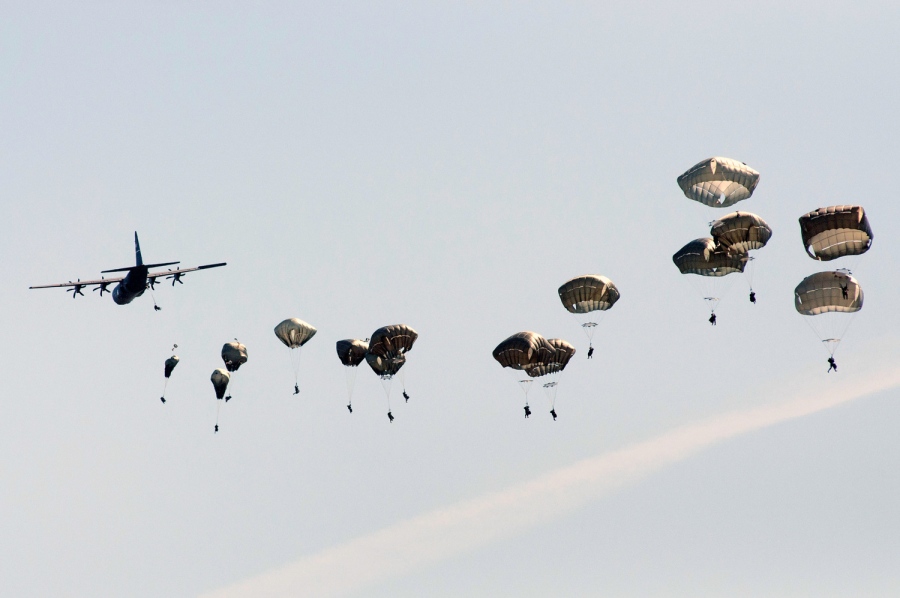To jumpstart the campaign against ISIS, the Pentagon is considering deploying conventional troops into the fray against ISIS. The implications are far-reaching and many questions arise. This could have been an inevitable outcome. It could be a product of ‘mission creep.’ Stakeholders within the Pentagon are beginning to claim their ‘piece of the pie.’
The Pentagon, and indeed most government agencies, operate like an umbrella organization. Under that umbrella there are many small enterprises. Each enterprise or entity has to live and survive. They also each want to be distinguished and find some notoriety while contributing to the overall mission.
Funding sloshes between departments, offices, senior leaders and so does ideas. But capabilities, deployments, usage, and funding are prized.
At that level – things can be combative and are a kind of high politics that rarely gets discussed in regular society.
Historical RUMINT– Afghanistan was such a resounding success for SOF and their InterAgency counterparts infuriated conventional leaders. By the time Iraq was set to be planned – conventional senior leaders sought to be the main effort. As a result, they interpreted the Iraqi center of gravity to be Baghdad, but discovered it was the people. Who, eventually, revolted and presented a COIN (Counter insurgency) challenge.
I can’t help but wonder what the injection of conventional elements into a theatre that’s saturated with SOF means for the future of the campaign.
This also might be a response to requests from SOF elements operating in the region for other army troops. Such as Rangers who aren’t actively supporting JSOC operations. But, instead of Rangers Special Forces A-teams might team up with 82nd Paratroopers. My team did in Afghanistan.
In Afghanistan, the plan was to embed in smaller villages, build up a local force, create “white space” pushing the Taliban out and then hand-over the village to an infantry squad.
Then, Special Forces would move onto a new village deeper into Taliban territory. That might be an element of the fight against ISIS. To encroach on their territory and dominate the real estate; a village and town at a time.
In that context, conventional troops will more or less occupy and maintain security as SOF moves forward and preps the environment for the infantry.
The question remains as to what the policy will be and what kind of war will be enacted. Will this mirror Afghanistan (SOF) or turn into Iraq (more conventional usage). Hopefully, it’s a unique combination that’s effective and gets the job done.
Already have an account? Sign In
Two ways to continue to read this article.
Subscribe
$1.99
every 4 weeks
- Unlimited access to all articles
- Support independent journalism
- Ad-free reading experience
Subscribe Now
Recurring Monthly. Cancel Anytime.











COMMENTS